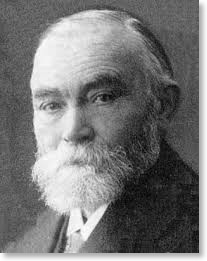
Begriffsschrift was followed by Die Grundlagen der Arithmetik (Foundations of Arithmetic) in 1884. Having previously completed a manuscript of a more formal treatment of Logicism around 1882—a lost ancestor of Grundgesetze—Frege developed a philosophical foundation for his position in Grundlagen. At the end of Grundlagen, Frege was, however, left with the monumental task properly to establish Logicism: he needed to identify a small number of basic laws of logic; offer a small number of indisputably sound rules of inference; and, finally, provide gapless proofs in his formal system of the basic laws of arithmetic, using only the identified basic laws and rules of logic together with suitable explicit definitions. This was the task of his magnum opus: Grundgesetze der Arithmetik.
In 2003 we started the Grundgesetze translation project. The aim was to produce the first complete translation of Frege’s magnum opus, while retaining the original pagination and the original formalism. Our translation is published by Oxford University Press and available here. It is now also available as paperback.
More information on Gottlob Frege can be found on Stanford Encyclopedia of Philosophy